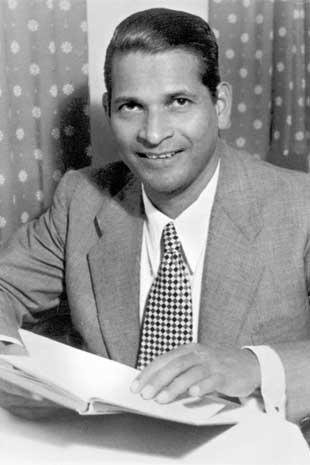
About Thea
Read her whole story or peruse the highlights below.
Rudolf Klein-Rogge:
The “Lon Chaney” of Germany
Thea’s first husband, Rudolf Klein-Rogge, was one of finest character actors in Weimar Germany. He divorced her in 1920 after the suicide of Lang’s first wife, and yet they remained friends and colleagues, and Lang used him repeatedly for major roles in his iconic films: “Rotwang” in Metropolis, “Dr. Mabuse” (the insane lord of crime) in three films, and “Haghi” (master spy) in Spies among other roles. After Lang divorced Thea in 1933, Rudy also starred in her first two directing efforts Elisabeth and the Fool and Little Hannele’s Ascent to Heaven.
Trümmerfrauen:
“The Rubble Women”
After Thea was released from the internment camp at Staumühle, she was returned to Berlin with orders not to work in the movies. Broke, unemployed, disheartened, she then did something remarkable: she voluntarily became a Trümmerfrau even though she was in her late fifties. For the next nine months, she helped to clean the streets of Berlin with her bare hands, but tendonitis eventually forced her to see other volunteer work until she was eventually permitted to work in the movies again.
Shock-Haired Peter
One of a number of nightmarish characters created by Dr. Heinrich Hoffmann in 1845 to frighten unruly children into submission. Peter and other characters from Hoffmann’s extremely popular children’s books appear in the first act finale, “German Fairy Tales.” Hoffmann’s books retain their popularity to this day, largely due to the freakish quality of his illustrations.
Fritz Lang:
Thea’s Second Husband
Her screenplays for Fritz Lang elevated them to the status of Berlin’s Power Couple for the Weimar era. Actress Lil Dagover remarked, “For me, Fritz Lang was one of the most elegant figures on the scene at the time. If he—tall, athletic, always with his monocle—walked into a ballroom next to the beautiful, clever and funny Thea, then both of them were immediately the center of attention: they were a couple who simply couldn't be overlooked." Alas, the marriage was a sham. Lang was a brute and a serial adulterer, and when the Nazis came to power in 1933, Lang divorced von Harbou and left Germany to pursue a much less successful career in Hollywood..
Ayi Ganpat Tendulkar:
Thea’s Forbidden Love
Thea’s third husband was the dark-skinned, magnetic Ayi Ganpat Tendulkar. A graduate student and a journalist, Ganpat was seventeen-years her junior, but they shared a passionate belief in freeing India from the grip of the British. They married promptly in 1933 after Lang’s exit from Germany—a marriage that was strictly forbidden by the Nuremberg Laws. For six years, they successfully managed to hide their marriage from the Nazis. But within a month of the catastrophic events of Kristallnacht, she was was called in for questioning about him. She decided his staying in Berlin would be too dangerous for him, and in January of 1939, she released him from his vows, and he returned safely to India.




